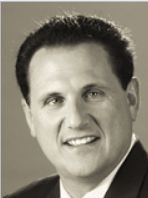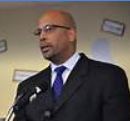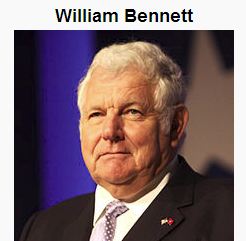Contents
- Introduction
- Preface
- Overview
- Relief Valve
-
LECTURE 1: Why We Are In The Dark About Money
- Wealth Objectives
- The Basics - Knowledge is Power
- The Wizard of Oz Story Allegory
- K12 Wealthy Decide
- Richest Two Percent Own Half World
- Cost of Inequality
- K Street Lobbys Write the Law
- Official Federal Reserve K12 Financial Literacy Curriculum by Grade Level
- What's Left Out of the Official U.S. Federal Reserve Curriculum
- EducRats
- Financial Literacy Quotes
- Lecture 1 Objectives and Discussion Questions
- LECTURE 2: The Con
- LECTURE 3: The Vatican-Central to the Origins of Money & Power
- LECTURE 4: London The Corporation Origins of Opium Drug Smuggling
- LECTURE 5: U.S. Pirates, Boston Brahmins Opium Drug Smugglers
- LECTURE 6: The Shady Origins Of The Federal Reserve
- LECTURE 7: How The Rich Protect Their Money
- LECTURE 8: How To Protect Your Money From The 1% Predators
- LECTURE 9: Final Thoughts
THE CLEAR RISKS OF PRIVATIZING EDUCATION
 For-profit colleges and the Education Industry.
For-profit colleges and the Education Industry.
Public subsidies may provide up to 90% of revenue; the government bears the risk of loan defaults. Online classroom enrollment jumped by 225% between 1998 to 2008, more than seven times the rate for all post-secondary programs. In 2008-09, $24 billion in Pell grants and federal loans went to for-profit colleges. In 2009, the average yearly tuition was about $14,000, compared with $2,500 at a community college.
Vice President at Sallie Mae confirmed that they sell private loans for 15 cents on the dollar!
Multiply the total of your student loan by .15 CENTS AND THAT IS ALL YOU REALLY OWE!!!
Taxes
The national average is 10.8% to the state for every $100 of income received according to data provided by the U.S. Census Bureau and U.S. Bureau of Economic Analysis, in 2007-08. The State then will give some of that money to your State Department of Education who in turn will give some to every school district. However if the child stops going to the public school and elects to go to the charter school or virtual school, the money follows the child. It doesn't stay with the school district. The school district will go bankrupt eventually. All the state money of the commonwealth will go into private bank accounts. This is how they privatize education.
With less tax revenue, this means that state and local governments spend less too, even on the most important governmental function of all — educating our children. According to data provided by the National Center for Education Statistics, in 2007-08 state and local governments spent as little as $5 billion supporting some state's public schools — or $7,683 per pupil. The national average for that year, though, was $10,297 per pupil. Education funding averaged 4.15 percent of state personal income.
 Lying is institutionalized
Lying is institutionalized
If the President can lie, why shouldn't everyone? It's an epidemic. From Wall Street down to Main Street. The truth is for losers, and the connected ( Wall Street, University, Government ) conspire to get away with it, and do.
Years before Phil Gramm was a McCain campaign adviser and a lobbyist for the USB Swiss bank at the center of the housing credit crisis, he pulled a sly maneuver in the Senate that helped create today's subprime meltdown.

Because of the swap-related provisions of Gramm's bill—which were supported by Fed chairman Alan Greenspan and Treasury secretary Larry Summers—a $62 trillion market (nearly four times the size of the entire US stock market) remained utterly unregulated, meaning no one made sure the banks and hedge funds had the assets to cover the losses they guaranteed.
K12.COM K¹² CONNECTION

He is Assistant deputy secretary for innovation and improvement, managing a portfolio that includes most of the Department's competitive teacher quality, school choice and learning technology programs. Previously, he served as a program director for the education division of the Bill & Melinda Gates Foundation, managing the foundation's national programs and working in the northeast region of the United States.
Convicted Gambler and former Secretary of Education Bill Bennett In 2003 it became publicly known that Bennett was a high-stakes gambler who reportedly had lost millions of dollars in Las Vegas.[9] Some felt it conflicted with his public image as a leading voice for conservative morals. Criticism elevated in the wake of Bennett's publication, The Book of Virtues, in which he argued for self-discipline— an attribute at odds with problem gambling. Bennett and Empower America, the organization he co-founded and headed at the time, opposed the extension of casino gambling in the states.[10] Bennett never said he had a problem with gambling and has maintained that his habit did not put himself or his family in any financial jeopardy. After Bennett's gambling became public, he said that he did not believe that his habit set a good example, that he had "done too much gambling" over the years, and that his "gambling days are over". "We are financially solvent," his wife Elayne told the USA Today. "All our bills are paid." She added that his gambling days are over. "He's never going again," she said.[11]
Bennett sweeps through the United States with his own business called K-12.com. He served as United States Secretary of Education from 1985 to 1988. He also held the post of Director of the Office of National Drug Control Policy under George H. W. Bush. In 2000, he co-founded K12, a for-profit online education corporation which is publicly traded. Bennett tends to take a conservative position on affirmative action, school vouchers, curriculum reform, and religion in education.

2011. Shelton has also been a partner and the East Coast lead for NewSchools Venture Fund and co-founded LearnNow, a school management company that later was acquired by Edison Schools. He spent over four years as a senior management consultant with McKinsey & Company in Atlanta, Ga., where he advised CEOs and other executives on issues related to corporate strategy, business development, organizational design, and operational effectiveness. Upon leaving McKinsey, he joined Knowledge Universe, Inc., where he launched, acquired and operated education-related businesses.
EXAMPLES OF GOVERNMENT GRANT MONEY GIVEN TO PRIVATE EDUCATION BUSINESS
The education industry, received at least $4 billion in U.S. grants and $20 billion in Department of Education loans in 2009
CHARTER SCHOOLS
Charter Schools Program (CSP)
Grants to Non-State Educational Agencies for Planning, Program Design, and Implementation and for Dissemination (Federal Register: July 26, 2010 [CFDA# 84.282B and 84.282C]
Purpose of Program: The purpose of the CSP is to increase national understanding of the charter school model and to expand the number of high-quality charter schools available to students across the Nation by providing financial assistance for the planning, program design, and initial implementation of charter schools, and to evaluate the effects of charter schools, including their effects on students, student academic achievement, staff, and parents. The non-State educational agency (non-SEA) grants for planning, program design, and implementation, and non-SEA grants for dissemination provide funds for these purposes to eligible applicants in States in which the SEA does not have an approved application under the CSP.
Applications Available: July 26, 2010.
Deadline for Transmittal of Applications: August 25, 2010.
Eligible Applicants: (a) Planning and Initial Implementation grants (CFDA number 84.282B): Non-SEA eligible applicants in States with a State statute specifically authorizing the establishment of charter schools and in which the SEA elects not to participate in the CSP or does not have an application approved under the CSP. (b) Dissemination grants (CFDA number 84.282C): Charter schools, as defined in section 5210(1) of the ESEA, in States in which the SEA elects not to participate in the CSP or does not have an application approved under the CSP.
Estimated Available Funds: $3,000,000.
Estimated Range of Awards: $140,000-$200,000 per year.
Estimated Average Size of Awards: $175,000 per year.
Estimated Number of Awards: 15-21.
Additional information is available online at:
ed.gov/legislation/
The New Hampshire Department of Education will be getting a federal grant to help expand charter schools in the state. But officials don't know yet how much the grant will be for. The state applied for $11.6 million. Charter schools operate with more organizational flexibility than traditional schools.

Kim Smith co-founder and CEO of Bellwether Education Partners bellwethereducation.org. Founding team members include Andrew Rotherham, Mary Wells and Monisha Lozier. Rotherham is the co-founder of influential independent think tank, Education Sector, as well as one of the most respected national writers and thought leaders on education reform, as author of the popular blog Eduwonk.com who also writes regularly for U.S. News & World Report and other publications.
Kim Smith is Founder of NewSchools Venture Fund, which invests in education businesses. The NewSchools Venture Fund is a non-profit venture philanthropy fund that invests in educational entrepreneurship projects at the K-12 levels in United States public schools.1998 - 2001 $20 million fund that supported nine organizations, primarily addressing key leverage areas within the context of standards, accountability and choice. NewSchools offers expertise and administrative support as well funding, both through Charter Acelerator Fund, which helps establish charter school systems, and through its Performance Accelerator Fund, which supports entrepreneurial projects in established school systems. The organization invests in both not-for-profit and for-profit organizations, focusing its portfolio on projects that have the potential to benefit underserved children.
Think Tank Scholar or Corporate Consultant? It Depends on the Day
An examination of 75 think tanks found an array of researchers who had simultaneously worked as registered lobbyists, members of corporate boards or outside consultants in litigation and regulatory disputes, with only intermittent disclosure of their dual roles. With their expertise and authority, think tank scholars offer themselves as independent arbiters, playing a vital role in Washington’s political economy. Their imprimatur helps shape government decisions that can be lucrative to corporations. But the examination identified dozens of examples of scholars conducting research at think tanks while corporations were paying them to help shape government policy. Many think tanks also readily confer “nonresident scholar” status on lobbyists, former government officials and others who earn their primary living working for private clients, with few restrictions on such outside work.

Charter Schools are For-Profit Public Education,
run by hopeful entrepreneurs, funded by
$Billionaires, Banks, Hedge Funds, and Private Equity firms
who will profit from For-Profit Public Education.
HIGHER EDUCATION INC.: UNIVERSITIES HELPING EXECUTIVES MAKE $$ IN EDUCATION
DOUG LYNCH, Vice Dean Graduate School of Education University of Pennsylvania
All he knows about is how to help Executives make money in Education
3700 Walnut Street Philadelphia, PA 19104 Phone: 215.573.5022 Email: dougl@gse.upenn.edu
4/26/12 Vice Dean of University of Pennsylvania Graduate School of Education resigned. He was taken off the job over allegedly false claims that he’d earned his doctorate.
Doug helped start one of the country's first charter schools,the Genesis Academy.
CONNECTION BETWEEN DOUG LYNCH AND JULIA ROSEN

 MILKEN JUNK BOND SCANDAL FAMILY FOUNDATION
MILKEN JUNK BOND SCANDAL FAMILY FOUNDATION
NEST, for Networking Ed entrepreneurs for Social Transformation — would identify promising businesses and give them financial and logistical support, such as access to capital, work space and university expertise. Penn, an Ivy League university in Philadelphia, has already held two summits on education entrepreneurship and hosted its first business plan competition, sponsored by the school and MILKEN JUNK BOND SCANDAL FAMILY FOUNDATION
MICHAEL COHEN, president of Achieve, is a total policy wonk with no teaching credentials at all.
Yet, he started on school standards, curriculum, assessments and accountability, then on to the Core Standards so that more money can be spent on TESTING. ASSESSMENT
Michael Cohen is a nationally recognized leader in education policy and standards based reform. He has been the President of Achieve since 2003. In 2006, Education Week ranked Achieve as the 7th most influential education policy organization in the nation.

Bill and Melinda Gates are worth an estimated $76 billion. "I want to give my kids just enough so that they would feel that they could do anything, but not so much that they would feel like doing nothing." The power couple is supposedly planning to give each of their three children $10 million.
6/9/2014 Time for Congress to Investigate Bill Gates' Coup The story about Bill Gates' swift and silent takeover of American education is startling. His role and the role of the U.S. Department of Education in drafting and imposing the Common Core standards on almost every state should be investigated by Congress. The idea that the richest man in America can purchase and -- working closely with the U.S. Department of Education -- impose new and untested academic standards on the nation's public schools is a national scandal. A Congressional investigation is warranted. The close involvement of Arne Duncan raises questions about whether the law was broken. Thanks to the story in the Washington Post and to diligent bloggers, we now know that one very rich man bought the enthusiastic support of interest groups on the left and right to campaign for the Common Core. Who knew that American education was for sale?
8/29/13 A Brief Audit of Bill Gates' Common Core Spending
CCSS is not "state led." It is "Gates led." How foolish it is to believe that the man with the checkbook is not calling the CCSS shots. The "nonprofit" Student Achievement Partners, founded by CCSS "architect" David Coleman, also benefits handsomely via Gates. All that Student Achievement Partners does is CCSS, and for that, in June 2012, Gates granted Coleman's company $6.5 million. In total, the four organizations primarily responsible for CCSS- NGA, CCSSO, Achieve, and Student Achievement Partners- have taken $147.9 million from Bill Gates.
-
* Charter Management Organizations (CMOs): aligned nonprofit systems of charter schools
-
* School Support Organizations: organizations that provide additional infrastructure to schools to bolster their operational, academic and administrative functions
-
* Accountability and Performance Tools: organizations that provide technology tools, formative assessments, and professional development needed to dramatically improve the quality of instruction
-
* Human Capital: ventures that promote outstanding teaching, leadership, and
-
entrepreneurial management in our public school systems.
Beginning with the Carnegies and the Rockefellers, billionaires have long seen the nation’s education as a willing cause for their philanthropy — and, with it, their own ideas about how students should learn. The latest crop of billionaires, however, has tended to take the line that fixing our broken educational system is the key to unlocking our stagnant economy. Whether it’s hedge-fund managers like Paul Tudor Jones (who has given tens of millions to support charter schools) or industrialists like Eli Broad (who has backed “blended learning” programs that feature enhanced technology), these philanthropists have generally espoused the idea that education should operate more like a business. (The Walton Foundation, backed by the family that founded Walmart, has taken this idea to new heights: It has spent more than $1 billion supporting various charter schools and voucher programs that seek to establish alternatives to the current public-school system.) Often these patrons want to restructure the system to make it more efficient, utilizing the latest technology and management philosophies to turn out a new generation of employable students.
3/14 American Federation of Teachers announced that it would no longer accept grants from the Gates Foundation for its innovation fund, which had already received more than $5 million from the organization. Gates is polarizing figure in the education world. This owes largely to the fact that Gates, through his foundation, has spent more than $200 million to advocate for the Common Core, something of a third rail in education circles. He has financed an army of policy groups, think tanks and teachers’ unions to marshal support for the new rules and performance measurements that have been adopted by 44 states. No one knows how much of the children's and teacher's "Data" he has acquired, used, and sold to third parties!
EducRAT Bill Gates, who operates a bit like an unofficial head of state finally gets it! He thinks an interdiscipliary education makes sense! So he gets behind the Big History Project to High School Students. the high-school course links insights across subjects into wildly ambitious narratives. The Gates Foundation has spent more than half a billion on educational causes, which provides some context for the comparatively modest $10 million that he has personally invested in the Big History Project. The units begin with the Big Bang and shift to lesson plans on the solar system, trade and communications, globalization and, finally, the future.
Diane Ravitch, an education historian at New York University who has been a vocal critic of Gates, put even it more starkly: “When I think about history, I think about different perspectives, clashing points of view. I wonder how Bill Gates would treat the robber barons. I wonder how Bill Gates would deal with issues of extremes of wealth and poverty.” (The Big History Project doesn’t mention robber barons, but it does briefly address unequal distribution of resources.) Ravitch continued: “It begins to be a question of: Is this Bill Gates’s history? And should it be labeled ‘Bill Gates’s History’? Because Bill Gates’s history would be very different from somebody else’s who wasn’t worth $50-60 billion.” (Gates’s estimated net worth is approximately $80 billion.)



